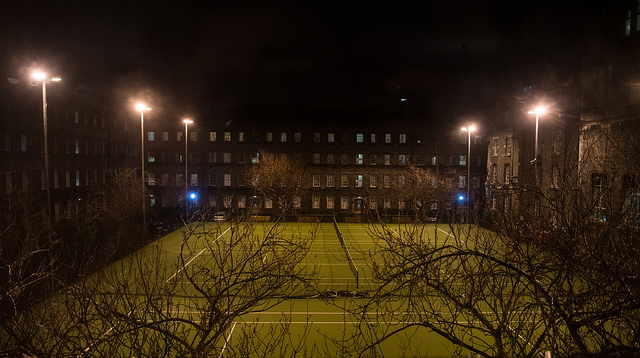Between fire safety talks, room checks, and not being able to bring guests back after midnight, Trinity’s far from the only university that plays the role of nanny state for their residents. But, very often, it feels as if this overblown paternalism isn’t really serving students’ best interests.
It would be naive to think that such practices exist simply to ensure student welfare and safety: they are, of course, also exercises of convenience and cost-cutting on the part of the college, which naturally struggles in the position of landlord to thousands. But is such tight control of student behaviour really justified? After all, the vast majority of students are adults, and even mature students and postgraduates aren’t exempt from this same treatment.
Mandatory fire safety talks, held at the beginning of each year for all campus and Trinity Hall residents, are arguably the most legitimate of these paternalistic regulations. Living in sweeping apartment blocks where fires have caused destruction in the past, it’s important to be conscious of safety measures for both your own sake and others’. The College’s approach to informing residents of this, however, is highly dubious, and involves showing attendees a reel of potentially disturbing images of fires on campuses, along with emotive narration of historical cases, with even a mention of Grenfell Tower thrown in this year. Such blatant employing of guilt and fear tactics, to scare students into compliance, is questionable at best.
These regulations absolve young students of the need to take control of their own lives
Even apart from that, as anybody who’s ever been to one of these fire safety talks will tell you, it quickly becomes apparent that “fire safety” is little more than a guise, comprising as it does only a sliver of the actual event. The rest? Unapologetic condescension of students, who are painted as irresponsible and spoiled brats, needing to be warned of the most basic of life lessons, often with humour softening the blow of being spoken to like an incompetent child. Students are cautioned about being out at night, being “sensible”, not drinking too much, and not getting their phones robbed, to name just a few examples.
Students, like all adults, need to be held accountable for their actions, just as they will be once they leave Trinity’s gates. If tenants are negligent, a landlord will kick them out or withhold their deposit. If students do the same in College residences, they should be subject to the same treatment. But routinely and pre-emptively checking up on them and entering their private residences, like parents checking to see if their kids have tidied their room? Hardly the dignified treatment that any adult deserves.
As well as being marginally humiliating, these regulations absolve young students of the need to take control of their own lives. When moving into a new apartment outside the padded walls of Trinity, the onus is on you to work with your landlord, flatmates, and neighbours to ensure the place is kept in reasonable condition, something which involves communication, cooperation, and self-initiative. These are vital life skills much less likely to be learnt in the closely supervised environment of residential dorms, where students are regularly monitored and “guided” by the powers that be.
Of course, the argument from the other side will inevitably be that evidence shows vast numbers of student residents lacking what might be called “common sense”. But fostering an environment where students do not have to face real consequences – merely a slap on the wrist from their figurative parent – doesn’t exactly encourage them to step up and behave as the adults they are.
People behave largely in accordance with how they’re treated. The Stanford Prison Experiment is an extreme example, but the point holds. Within a phenomenally short space of time, arbitrarily assigned guards were abusing power over inmates who, by and large, accepted their degrading treatment. Similarly, by College positioning themselves as authoritarian ruler, students are placed into a powerless, childlike role.
People not only need to make stupid mistakes to grow, but it is, quite frankly, their prerogative to do so if they choose
Maturity and age have an obvious correlation, but how old you are is far from the only factor influencing “good” behaviour. Herd mentality can get the better of even the most sensible and well adjusted among us. Put people in the right (or wrong) situation – think of a stereotypical stag or hen night – and their behaviour may shock you. Pitting students against an authority figure immediately fuels an us-against-them mentality which, like pupils in the classroom slyly misbehaving under the teacher’s watchful eye, makes them more likely to act up and rebel against the order. Being trusted and treated like an equal doesn’t provoke the same response.
From the College’s perspective, of course there are valid concerns. Some students’ irresponsible behaviour directly impacts upon them, whether it’s by causing drunken commotion on campus late at night or damaging property in residences. But within any large community, dissidence is inevitable. It’s a general fact of life that people are going to behave badly: that doesn’t justify exerting undue control and power to stop them.
People not only need to make stupid mistakes to grow, but it is, quite frankly, their prerogative to do so if they choose. Like in the “real world” – which College is supposed to not only prepare you for, but constitute – students in residences should have to face the repercussions of that behaviour, whatever they may be.







